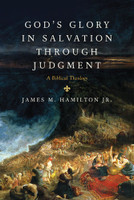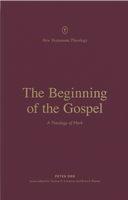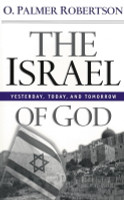
What Is Biblical Theology? A Guide to the Bible's Story, Symbolism, and Patterns (Hamilton)
The Bible recounts a single story—one that began at creation, encompasses our lives today, and will continue till Christ’s return and beyond. In What Is Biblical Theology?, Jim Hamilton introduces us to this narrative, helping us understand the worldview of the biblical writers so that we can read the Old and New Testaments as those authors intended. Tracing the key patterns, symbols, and themes that bind the Bible together, this book will help you understand Scripture’s unified message and find your place in the great story of redemption.
Table of Contents:
- A Better World Breaks Through
- What Is Biblical Theology?
Part 1: The Bible’s Big Story
- The Narrative
- Plot: Conflict, Episodes, and Theme
- The Mystery
Part 2: The Bible’s Symbolic Universe
- What Do Symbols Do?
- Imagery
- Typology
- Patterns
Part 3: The Bible’s Love Story
- A Song for the Lady in Waiting: The Bride of Christ and Biblical Theology
- The Church’s Identity in the Story
- The Church’s Setting in the Story
- The Church’s Plot Tension and Its Resolution
Author
James M. Hamilton Jr. (PhD, The Southern Baptist Theological Seminary) is associate professor of biblical theology at The Southern Baptist Theological Seminary and preaching pastor at Kenwood Baptist Church. He is the author of God's Glory in Salvation through Judgment and theRevelation volume in the Preaching the Word commentary series.
Endorsements
“What Is Biblical Theology? confirms Jim Hamilton’s reputation as a top-shelf thinker and a wickedly good writer. This slim volume builds on the presupposition that the capacious biblical narrative—sixty-six books written by numerous authors and including stories, poems, proverbs, letters, and apocalypses—possesses a deep inner unity. Its unity arises from its divine inspiration, and it is in fact the true story of the whole world. Hamilton teaches his readers to engage in biblical theology, allowing the biblical story to shape us and conform us to God’s will.”— Bruce Ashford, Provost, Dean of Faculty, and Associate Professor of Theology and Culture, Southeastern Baptist Theological Seminary
“Theology is a word that comes with baggage. Most people, like me, find their brains shutting down a little at its mention, mainly because it stirs up the same sort of feelings as words like calculus and dentist appointment. But from the outset of this book James Hamilton assures us he’s not performing mental acrobatics (though I'm sure he could if he wanted to). Rather, he’s showing us that if the Bible is a story, and God is a storyteller, then biblical theology is less like math and more like literature; it’s less like a cold study of the chemical properties of paint and more like gazing at a Van Gogh. This is a book I wish I could have read a long time ago.” — Andrew Peterson, singer/songwriter; author, The Wingfeather Saga series
“This short, accessible book shows how we can move away from making the Bible all about us, reducing it to just another self-help book. Anyone who reads What Is Biblical Theology? will begin to discover what the Bible is really about and will have more ‘Now I get it!’ experiences as it equips readers to trace the thematic threads and story-line resolutions of the Bible from beginning to end.” — Nancy Guthrie, Bible Teacher; author, Seeing Jesus in the Old Testament Bible study series
“Disoriented Bible reading leads to disoriented living. Too often the Bible reader parachutes into a passage without understanding the immediate context or the overarching context of the entire Bible. Getting oriented to the whole story of the Bible is the only way to right interpretation and right living. Gaining this whole-Bible interpretive perspective is the burden of biblical theology, and Jim Hamilton has given us an outstanding introduction to this import yet neglected discipline. If the interpretive approach of Hamilton’s book is applied, the reader will be able to better understand God’s Word, know the mind of Christ, and glorify God.” — Erik Thoennes, Professor of Theology, Chair, Talbot School of Theology, Biola University; Pastor, Grace Evangelical Free Church, La Mirada, California





